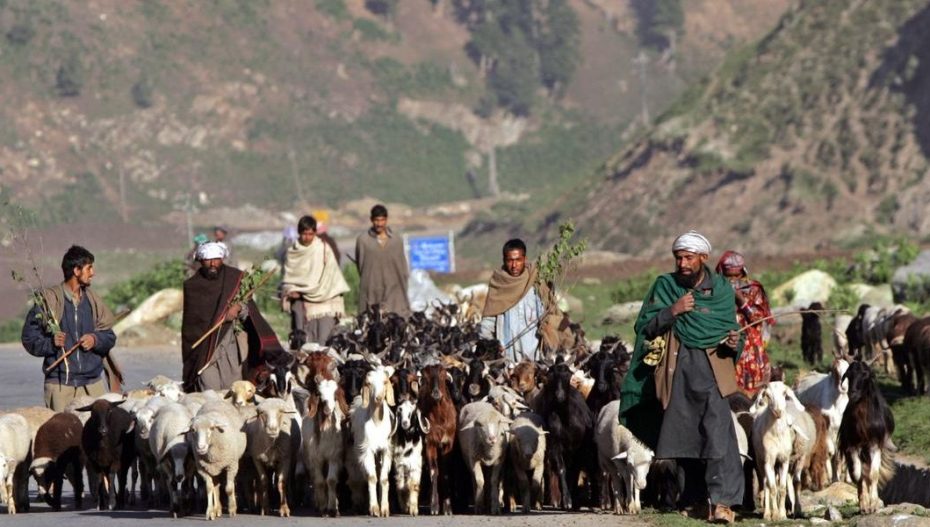The Jammu and Kashmir Delimitation Commission’s recent interim report has not gone down well with political parties.
The dissension across various regions of Jammu and Kashmir became discernible after the Commission shared its interim report with five associate members who were elected Members of Parliament from the erstwhile state. Most parties have voiced reservations and disappointment. The report has proposed an addition of six seats in the Jammu province and one seat in the Kashmir province but says that the entire Union Territory will be treated as one unit for seat distribution.
The most striking aspect of this report is that has also proposed reservation of nine seats for Scheduled Tribes (STs) This reservation will be happening for the first time in J&K. The commission has also proposed reserving seven seats for Scheduled Castes (SCs). In the previous legislative Assembly, there were also seven seats reserved for SCs, but there was no such reservation for STs. Six out of the nine ST seats within the twin districts of Rajouri and Poonch constitute 32.06% of the total ST population (2011 Census). The other reserved seats are from Anantnag (Larnoo), Ganderbal (Kangan) and Bandipore (Gurez).
It has never been easy for communities like scheduled caste and scheduled tribes to get equal rights without facing a political backlash.
This denial of constitutionally guaranteed reservation under Article 332 post-1991 when four communities (the Gujjars, Bakerwals, Gaddis and Sippis) were granted ST status indicates the harsh reality of this pre planned discrimination. The blame was always put on section 370 for the absence of reservation for the tribals in J&K but this is not true. There is nothing in nothing in Article 370 that has prevented the provision of reservation to STs or extension of the Forest Rights Act (FRA), 2006 to J&K. Many features of the Constitution have been extended to J&K over the years. Further, SCs in J&K had reservations even before the abolition of Article 370, which was provided under the J&K Constitution. In 2007, A proposal was made During Ghulam Nabi Azad’s tenure as Chief Minister to introduce a bill in the Assembly to ensure these political rights, but nothing got implemented. This lack of will stems from unwillingness to share power with ST and SC, the two predominant groups of J&K. Both these groups are ethnically and culturally different from Dogras and the Kashmiris.
On the other hand, SC reservation had at least ensured that power remained within the ethnic group as far as Dogra leaders were concerned. For Kashmir leaders, seats reserved were drawn from the Jammu division and not for the Valley. The denial of political reservation and the absence of the Forest Rights Act had essentially become a bargaining tool. The Kashmir valley-based parties did not favor political reservation, and the Jammu based were against the Forest Rights Act. If one side argued for forest and land rights, the other side would oppose it with the political reservation issue. The result was the continued subjugation and disempowerment of STs in J&K.
The political situation changed when article 370 got abolished on August 5, 2019, along with the subsequent Jammu and Kashmir Reorganization Act, 2019. This move promised political reservation under Article 332 to tribals and led to the extension of the Forest Rights Act, 2006. Essentially, it has changed the nature of tribal politics in J&K, which had primarily centred around these two major objectives.
In other parts of India, political reservation both in the Lok Sabha and the Legislative Assemblies has been in place from the time the Constitution has come into force. The Forest Rights Act has been in place for around 17 years but tribals continue to be socially disempowered and economically deprived.
Although seats have finally been reserved for the ST and SC, this hardly changes the ground reality. In the 2014 elections, nine Gujjar candidates won the Assembly elections without reservation through community mobilization. They belonged to different parties and this made it difficult for them to present a united front and ensure that tribal issues were not neglected. This situation is not expected to change even today despite reservation of seats. The real change will come only if conscious attempts are made to prioritize tribal interests over party politics.
The current seat distribution indicates that the government is trying to limit tribal politics to Rajouri and Poonch (which the interim report has also done). This is a repetition of the past practice. The reality is that more than 68% of the ST population lives outside these districts.
It is important to uplift marginal tribes such as the Bakerwals, Gaddis and Sippis, whose population is 1,13,198, 46,486 and 5,999 respectively. Development of any community is not possible without empowerment of women. They need to play a significant role in the tribal politics of the UT and their participation and leadership must be facilitated and encouraged. They have already proven their leadership in the District Development Council (DDC) elections.












